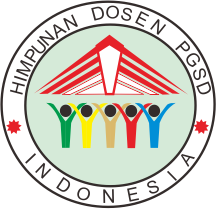Implementation of Counseling Guidance for Children with Special Needs (Viewed from Psychological Aspects, Socio-Culture and Science and Technology Development)
DOI:
https://doi.org/10.30595/dinamika.v11i2.5730Keywords:
guidance, counseling, special needsAbstract
The purpose of this study is to provide an overview of the importance of implementing counseling for children with special needs with auditory barriers in terms of psychological, socio-cultural aspects to the development of science and technology. The role of guidance and counseling services in the realm of education becomes a basic necessity to support the growth and development of students optimally, starting from personality development, social skills (activity daily) to developments related to the potential of students so that they are expected to achieve their actualization later The research method used is descriptive qualitative research, by describing the implementation of counseling in the school, through observation, interviews, and documentation. The results of this study are counseling becomes a primary need for children with special needs, this is because of several aspects such as psychological or emotional instability than the ability to socialize in society such as the influence of bullying or pressure social, to the ability of children with special needs to keep up with as a form of interaction from cyberspace or the use of advanced technology. The implication of this study is that counseling is actually the basic foundation for research in children with special needs that are useful as identification of potential and talent as well as an effort to solve problems that occur for children with special needsReferences
1. [1] Aisyah, Siti (2018) Need for Counseling Guidance Services in Schools (Viewed from Psychological, Socio-Cultural and Science and Technology Development Aspects). Education and Development Journal. Vol. 4, No. 1
[2] Asih, G. Y., & Pratiwi, M. M. S (2010). Prosocial Behavior Viewed from Empathy and Emotional Maturity. Psychology Journal of Muria Kudus University, 1 (1), 33-42
[3] Aqila, Smart. (2010). Anak Cacat Bukan Kiamat. Cet.1. Yogyakarta: Kata Hati
[4] Caraka, Bkhakti & Nindiya, Safitri (2017) Role of Guidance and Counseling for Facing Generation Z in the Guidance and Development Counseling Perspective. GUSJIGANG Counseling Journal. Vol. 3, No. 1
[5] Diahwati, Rina & Hariyono, Hanurawan (2016). Social Skills of Students with Special Needs in Inclusive Elementary Schools. Journal of Education: Theory, Research and Development, Vol. 1, No. 8
[6] Ebizie, E.N., Enajedu, E.E., Nkechi, E., (2016). The Role of Guidance and Counseling in Effective Teaching and Learning in Schools. International Journal of Multidisciplinary Studies. Vol. I, No. 2, pp.36-48
[7] Emmi Khalilah (2017). Guidance and Social Personal Counseling Services in Improving Student Social Relations Skills. JIGC. Vol. 1, No. 1, 41-57
[8] Firdian & Sugiyo, Purwanto (2017). The effectiveness of the guidance of Positive Modeling and Affirmation Techniques to Reduce Bullying Elementary School Behavior. Journal of Counseling Guidance. Vo. 6, No.2
[9] Foluke, NB & Oluwabunmi, O.O (2017). Influence of Counseling Services on Perceived Student Academic Performance of Secondary Schools in Lagos State. International Journal of Instruction. Vol. 10, No. 2. Pp. 211-228
[10] Goodman-Scoot, Emily & Jenifer Scaturo, Ian Martin, Kathy Biles (2016). School Counseling Faculty Perceptions and Experiences Preparing Elementary School Counselors. The Professional Counselor. Vol. 6. Issue 4, P.303-317
[11] Gul Kahveci (2016). School Counseling and Students with Disabilities. International Online Journal of Primary Education. Vol. 5, issue 2.
[12] Irham, Muhammad (2013). Counseling Guidance in Madrasas. Journal of Islamic Education UIN Sunan Gunung Jati. Vol. XXVIII / NO.3
[13] Kenneth O.O., Beatrice A.O., Peter O., (2014). Effectiveness of Guidance and Counseling Services on Adolescent Self-concept in Khwisero District, Kakamega Country. International Journal of Human Resource Studies. Vol. 4, No. 4
[14] Margaret, J.K.R, (2015). Planning and Implementation of Guidance and Counseling Activities in Secondary Schools: A Case of Kamariny Division of Keiyo District, Kenya. Journal of Education and Practice. Vol 6, No. 5.
[15] Toe D. M & Paatsch L.E. (2010) The Communication Skills Used by Deaf Children and Their Hearing Peers in A Question and Answer Game Context. Journal of Deaf Studies and Deaf Education. Pp. 229-241
[16] Yusuf, Syamsu & Nurihsan, Juntika (2011). Landasan Bimbingan & Konseling. Bandung: Remaja Rosdakarya & PPs UPI
Downloads
Published
How to Cite
Issue
Section
License
Authors who publish with this journal agree to the following terms:
Authors retain copyright and grant the journal right of first publication with the work simultaneously licensed under a Creative Commons Attribution License that allows others to share the work with an acknowledgement of the work's authorship and initial publication in this journal.
Authors are able to enter into separate, additional contractual arrangements for the non-exclusive distribution of the journal's published version of the work (e.g., post it to an institutional repository or publish it in a book), with an acknowledgement of its initial publication in this journal.
Authors are permitted and encouraged to post their work online (e.g., in institutional repositories or on their website) prior to and during the submission process, as it can lead to productive exchanges, as well as earlier and greater citation of published work (See The Effect of Open Access).

Dinamika Jurnal Ilmiah Pendidikan Dasar is licensed under a Creative Commons Attribution 4.0 International License.













